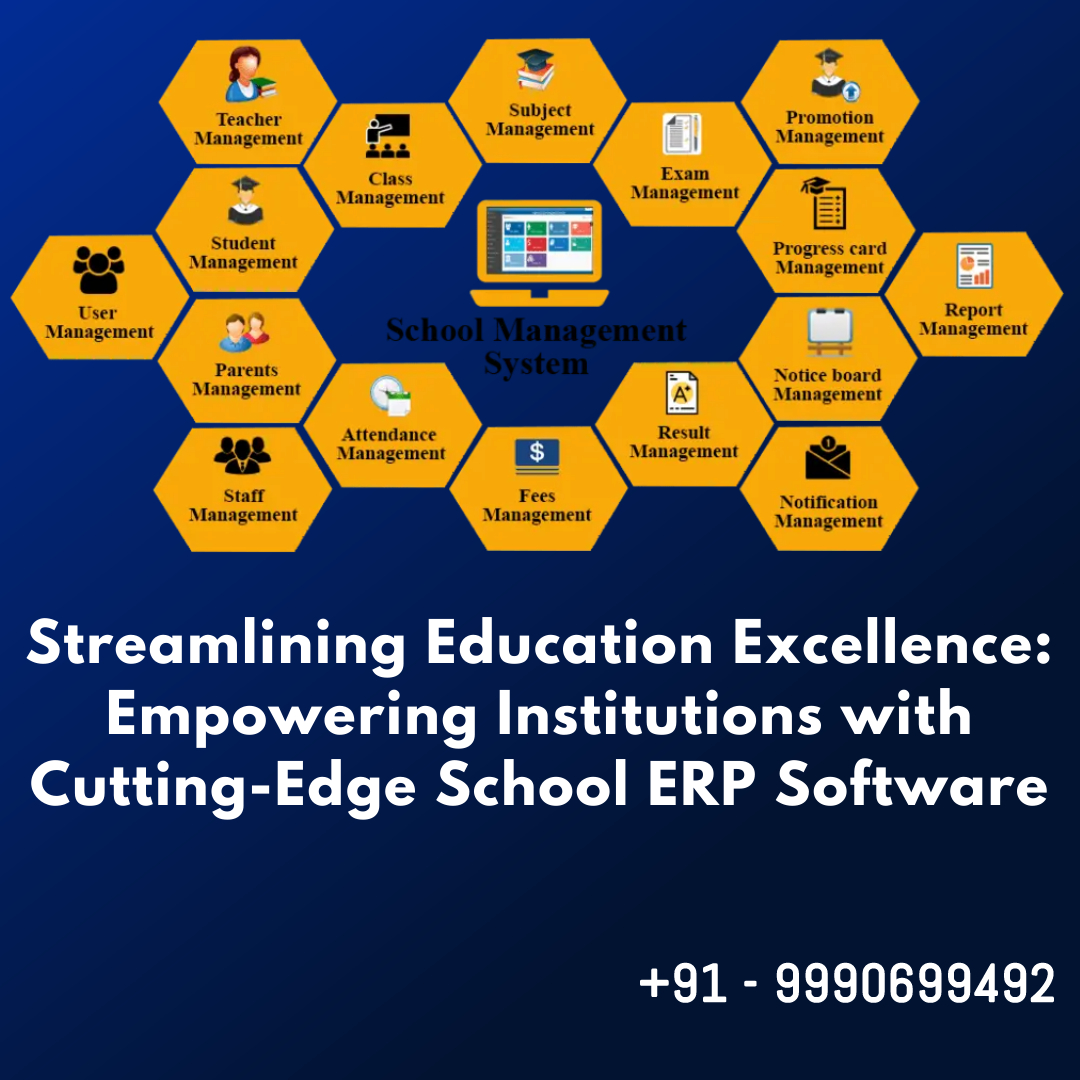In the dynamic landscape of education, the integration of technology has become paramount to enhance efficiency, communication, and overall management within educational institutions. One such groundbreaking solution leading this transformation is School ERP Software, a comprehensive platform designed to revolutionize the way schools operate and manage their myriad functions. In this article, we will delve into the significance of School ERP Software and its pivotal role in shaping the future of education.
The Evolution of School Management: A Paradigm Shift
Traditionally, school management involved a plethora of manual tasks, from attendance tracking to grade management, fee collection, and communication with parents. This labor-intensive approach often led to inefficiencies, errors, and a considerable drain on resources. However, with the advent of School ERP Software, educational institutions have witnessed a paradigm shift towards streamlined and automated processes.
Key Features of School ERP Software
1. Attendance Management:
School ERP Software offers an intuitive attendance management system, eliminating the need for manual tracking. With real-time updates, teachers can easily monitor student attendance, track trends, and generate comprehensive reports.
2. Gradebook and Academic Management:
The software enables efficient management of academic data, including grading, exam schedules, and progress reports. Teachers can input grades, track student performance, and generate insightful reports to facilitate data-driven decision-making.
3. Fee Collection and Financial Management:
School ERP Software simplifies fee collection and financial management, ensuring transparency and accuracy. Automated reminders, online payment options, and detailed financial reports contribute to a seamless financial workflow.
4. Communication Portal:
Enhancing communication between stakeholders is a crucial aspect of School ERP Software. The platform provides a centralized communication portal, allowing teachers, parents, and administrators to stay connected through announcements, notifications, and messaging features.
5. Timetable Management:
Creating and managing timetables becomes hassle-free with School ERP Software. The system optimizes scheduling, taking into account teacher availability, classroom allocations, and other logistical considerations.
Advantages of Implementing School ERP Software
1. Efficiency and Time Savings:
Automation of routine tasks leads to increased efficiency and significant time savings for educators and administrators. This allows them to focus more on teaching and strategic planning.
2. Enhanced Parent-Teacher Collaboration:
The communication portal fosters a stronger connection between parents and teachers, providing real-time updates on student progress, attendance, and other relevant information. This transparency promotes collaborative efforts to support students’ academic journey.
3. Data-Driven Decision-Making:
School ERP Software generates comprehensive reports and analytics, empowering educational institutions to make informed decisions based on accurate and up-to-date data. This data-driven approach contributes to improved overall performance.
4. Cost-effectiveness:
By automating various processes, School ERP Software helps in reducing manual efforts and, consequently, operational costs. The long-term cost-effectiveness of the software is a significant advantage for schools.
Future Trends in School ERP Software
As technology continues to evolve, School ERP Software is expected to incorporate even more advanced features. Artificial intelligence, machine learning, and data analytics will likely play a more prominent role in predicting student performance, optimizing resource allocation, and personalizing the learning experience.
Conclusion
In conclusion, the adoption of School ERP Software marks a pivotal moment in the evolution of educational management systems. By streamlining processes, enhancing communication, and providing valuable insights, this cutting-edge technology is transforming the way educational institutions operate. As schools continue to embrace the benefits of School ERP Software, they are not only ensuring efficiency in their day-to-day activities but also paving the way for a more collaborative, transparent, and data-driven educational landscape. Embracing this technological revolution is not just an option; it’s a necessity for institutions aspiring to deliver excellence in education.

